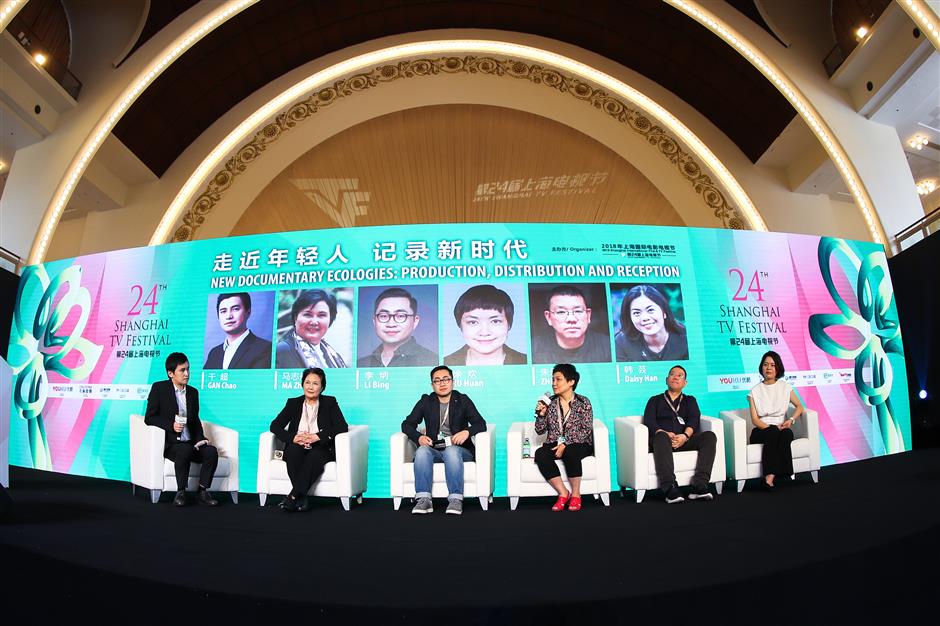Film makers discuss change of tact in China's docos

A forum titled “New Documentary Ecologies: Production, Distribution and Reception” is held in run-up to the annual Shanghai TV Festival in Shanghai on June 12, 2018.
China’s documentary industry is growing steadily with diverse broadcasting platforms and increasing appeal to the younger generation, TV professionals told a forum at the 24th Shanghai TV Festival on June 12.
The forum titled “New Documentary Ecologies: Production, Distribution and Reception,” gathered British documentary producer Nick Fraser, the jury president of the documentary category of the festival’s Magnolia Awards, Chinese documentary filmmaker Peng Hui, and Li Bing, director of the Documentary Center of Youku.
In recent years, a few acclaimed homegrown documentaries of varied subjects have emerged and attracted many young viewers on video-sharing websites. Among the productions are “The Tale of Chinese Medicine” and "Masters in the Forbidden City.”
These productions have also received high scores and aroused heated discussion among netizens on the film and TV review website Douban.
Documentary audiences are now expanding from traditional “three highs” (high income, high cultural level and high age) to younger groups, and documentaries have changed from the “side dish” to the “main dish.”
Nick Fraser believes that Chinese documentaries have bright prospects.
“China has so many impressive stories to tell,” Fraser said. “The whole society is changing year by year.”
Award-winning Chinese documentary filmmaker Peng Hui usually points his lens at people who live in adversity. He used to portray the lives of a poor farmer’s family and a group of vigilante rangers in Hoh Xil in Qinghai Province.
“In addition to documenting magnificent subjects and events, documentaries should tell real-life stories of ordinary people,” Peng said.
In terms of the huge market potential of Chinese documentaries, Li Bing, director of the Documentary Center of Youku, said they will provide more support in production and broadcasting for original Chinese productions.
Industry insiders also anticipated that documentaries will introduce more cutting-edge technology and innovative cinematography to cater to the tastes of young people.
Japanese documentary filmmaker Tetsuaki Matsue said that he puts much importance on how he shoots a documentary, and has been experimenting filming in 3D and using other crossover elements.
















